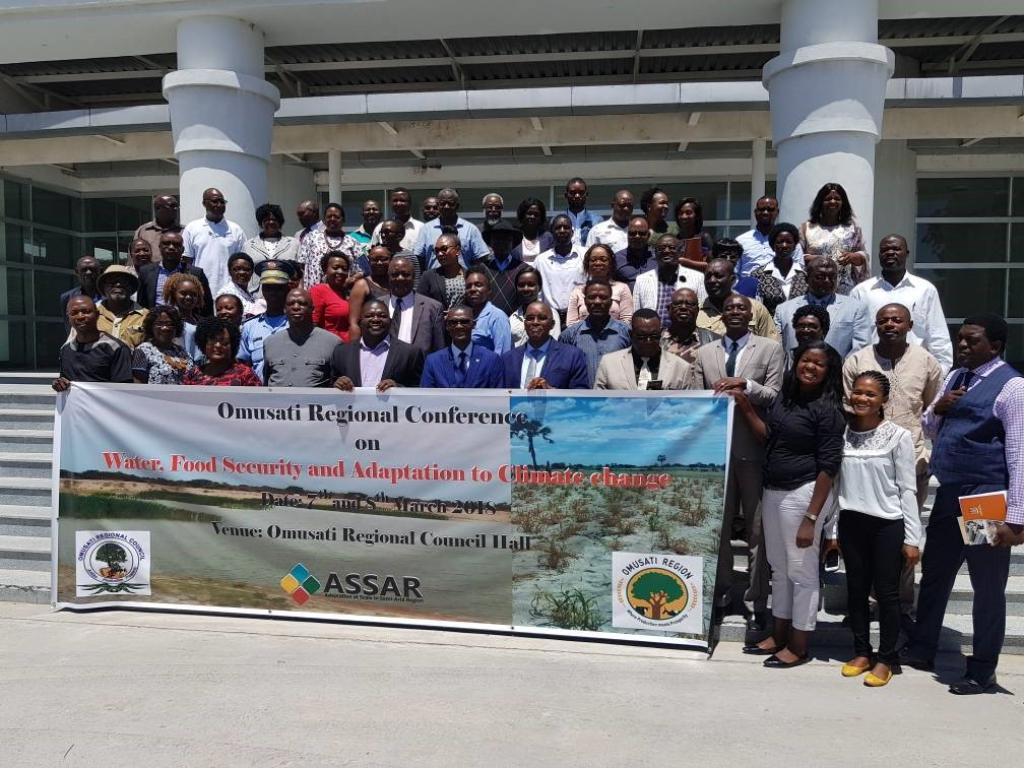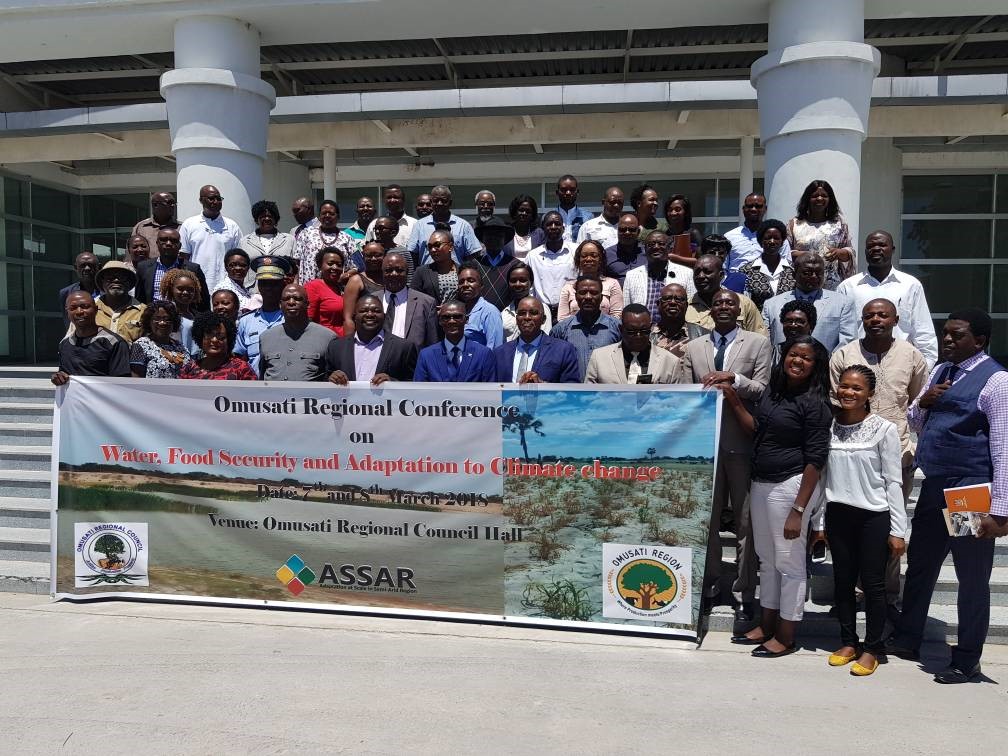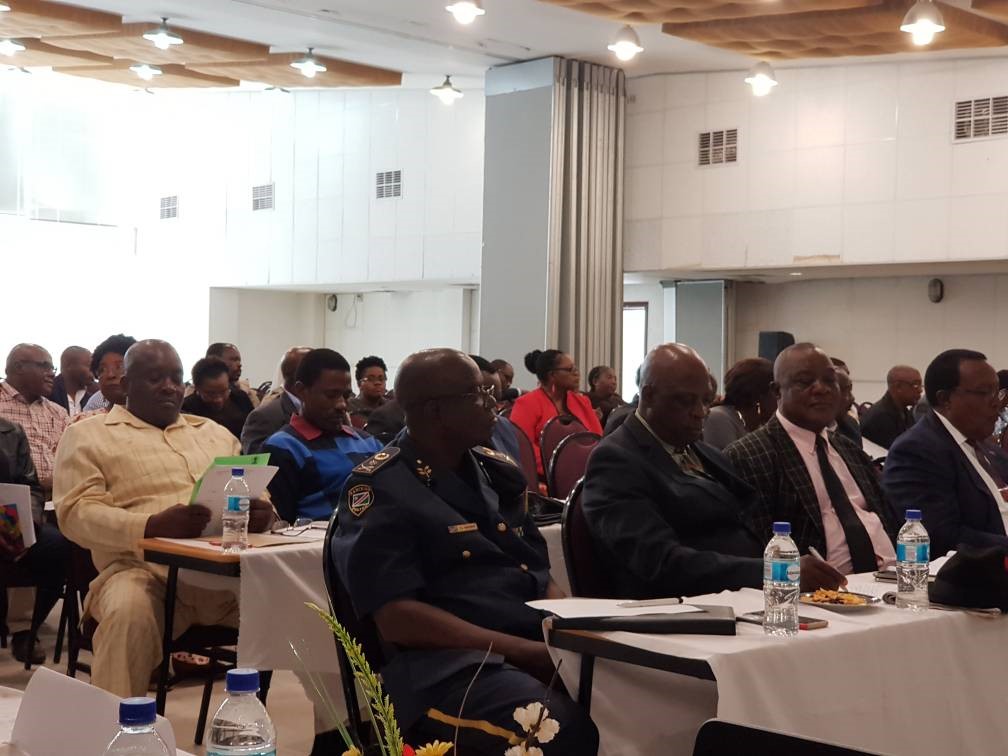Adapting to climate change in Omusati, Namibia: Where there is a will, there is way

By Bernadette Shalumbu
On the 7th and 8th of March 2018, the Office of the Governor in the Omusati Regional Council, in collaboration with the Adaptation at Scale in Semi-Arid Regions (ASSAR) project, hosted the Omusati Regional Conference under the theme: “Water, Food Security and Adaptation to Climate Change”. This year’s conference built on the foundation that was laid down by the Africa Drought Conference and Omusati Drought Conference, which both took place in 2016.

Omusati, one of the most populous regions in northern Namibia, is faced with a multitude of challenges, such as recurrent droughts, frequent floods, limited grazing (degraded rangelands), limited access to fresh produce markets, limited value addition (agro processing), high unemployment and high poverty incidences. These challenges are exacerbated by the effects of climate change (high temperatures, droughts and floods) and thus eroding the gains from efforts that the government has been ploughing into the agriculture sector over the years.
The prediction that weather conditions will become more severe during the next decades places the responsibility for adaptation on the shoulders of all Namibians, especially high-level managers, and policy and decision makers across all sectors. It is therefore important for people in north-central Namibia to understand how and why their climate is changing, so that they know how they can prepare for this change and make sure that there is enough food and water for the future.
The Omusati Regional Conference brought together a diverse group of stakeholders to discuss these various challenges faced by the region, and explore potential sustainable solutions.
In his keynote address, the Governor of Omusati Hon. Endjala stated that there is a need to find ways to secure water for agriculture purposes: “We need to improve agricultural productivity to ensure food security; we need to ensure that we secure markets for our producers; we need to make sure that our livestock have enough feed throughout the year; and we need to make sure that we enhance availability of our products throughout the year through value addition and agro processing. Above all, we need to make sure that we have in place the adaptive measures that will ensure that the effects of climate change are minimal. We cannot stop climate change from happening, so we have to adapt.”
This mammoth task cannot be achieved by one individual or by one region alone, but by the combined efforts of every person whose life is sustained by agriculture.
Since the agricultural sector is the main pillar for most of the industries in the Omusati Region, Endjala also stressed the importance of supporting and promoting small-scale agricultural producers in the region. Before the conference, he literally put his money where his mouth is by requesting that all food served at the conference be sourced locally. Therefore, the chickens were sourced from small chicken projects in Onesi and Etayi constituencies, the fish was sourced from the Ministry of Fisheries aquaculture farm and the vegetables came from the Olushandja Horticultural Producers Association. “The only thing on our plates today that was bought at a shop, is the rice,” Endjala pointed out.

After two days of intense discussions and deliberations, the conference brought about an improved awareness of the need to address water and food insecurity challenges in the face of climate change, while the various stakeholders also provided input into proposals for future funding to address climate change challenges in the region.
The following interventions for the funding of climate change adaptation in Omusati were identified and prioritised by the stakeholders:
-
Water proposals to include water harvesting, water channeling and portable water distribution
-
Animal fodder production as mitigation during drought years when forage is scarce
-
Commercialisation of local produce into climate smart products using advanced technologies
The development and submission of these proposals will be spearheaded by the Omusati Regional Councils directorate of Development Planning with support from the University of Namibia (UNAM), the ASSAR project, the Ministry of Environment and Tourism (MET), Ministry of Agriculture, Water and Forestry (MAWF), Horticultural Producers Association and the Desert Research Foundation of Namibia (DRFN).
In his concluding remarks, Endjala said: “If we share our ideas and seek to move towards a common goal of water security, food security and adaptation, we can achieve this goal together in our region, in northern Namibia and indeed in the Namibian nation. It starts with me and you.”
Photos by Cecil Togarepi.